
On 9 May 2025, the Thabo Mbeki African School of Public and International Affairs (TM-School) hosted a seminar at Unisa's Muckleneuk Campus in Pretoria, in the context of South Africa's G20 Presidency. The event attracted distinguished guests, including diplomats, academics and civil society members. It focused on assessing South Africa's challenges and strategic opportunities to promote a more inclusive global order, while also discussing a localised G20. This seminar reflected Unisa's commitment to leveraging its expertise in support of South Africa's G20 role, aiming to make a lasting impact on global governance and development through research.
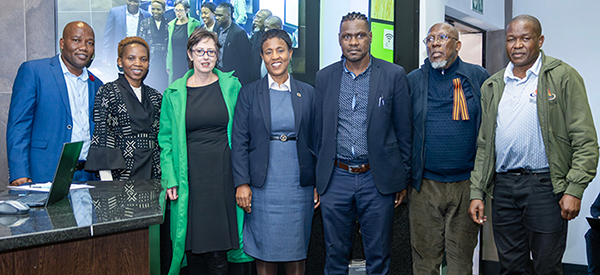
Prof Mbekezeli Mkhize (TM-School), Dr Bongiwe Mphahlele (TM-School), Prof Narnia Bohler-Muller (HSRC), Prof Edith Phaswana (Acting Executive Dean: TM-School), David Letsoalo (TM-School), Prof Sifiso Ndlovu (TM-School) and David Mello (TM-School)
Prof Edith Dinong Phaswana, the Acting Executive Dean of the TM-School, welcomed the management of Unisa and various dignitaries. She pointed out that Africa is projected to constitute a quarter of the world's population, with a remarkably youthful demographic. This new generation challenges outdated practices and seeks to end extractive relationships with the global community. Considering this, there is a growing demand for fair, equitable and sustainable solutions for Africa's future.
Dr Bongiwe Mphahlele, a postdoctoral fellow at the TM-School, highlighted that South Africa’s G20 presidency is a historic responsibility as South Africa prepares to host the first G20 Leaders’ Summit on African soil. Amid rising global tensions and weakened multilateralism, she stressed the need for South Africa to lead purposefully and to ensure that divisions do not overshadow its agenda. Mphahlele noted that managing regional conflicts is crucial, as intra-African tensions could undermine Africa’s credibility at the G20. She called for Africa to unify its voice, prioritise continental cohesion, strengthen AU coordination and build consensus on key priorities.
Despite current challenges, Mphahlele highlighted several key strategic opportunities for South Africa's G20 presidency. She emphasised that South Africa could integrate its national priorities, such as combatting gender-based violence (GBV), into global economic reform by promoting a values-driven agenda rooted in the Maputo Protocol, Agenda 2063, and Beijing+30. With GBV rates among the highest in the world, linking GBV to economic inclusion provides a strong platform for leadership. A gender-responsive G20, which prioritises women’s financial inclusion and ensures that the G20 roadmap for reforming multilateral development banks (MDBs) reflects these gendered priorities, must be central to South Africa’s presidency. South Africa should also leverage the upcoming Fourth Financing for Development (FfD4) Conference in Spain to advocate for reforms in the international financial architecture, climate financing and addressing Africa’s debt crisis. Finally, Mphahlele underscored the importance of preparing for a potentially challenging transition to the United States, ensuring that South Africa’s legacy endures beyond its term.
Ambassador Welile Nhlapo discussed the G20's historical context and challenges, noting its evolution amid shifting global power dynamics and resistance to Western governance. Established during the 2008 financial crisis by the USA to coordinate economic responses, the G20 has transitioned into a platform that questions US hegemony, evidenced by Washington's recent disengagement and reluctance to support South Africa’s presidency. Institutions like the IMF and World Bank have faced criticism for harming developing countries through imposed policies. Nhlapo emphasised that the USA’s selective commitment to global issues reveals a self-serving stance, underscoring the need for renewed global leadership that prioritises the Global South.
Sanusha Naidu discussed the G20's evolution from a finance ministers' forum to a summit of Heads of State, highlighting the need for institutional reform in today's fragmented global order. She noted the challenges faced by international financial institutions (IFIs) in adapting to this new reality and emphasised the importance of reconfiguring global development finance and governance. With the African Union as a permanent G20 member, she believes South Africa can lead the African agenda. However, the high number of G20 meetings may dilute policy influence, raising concerns about the effectiveness of engagement in this complex global context.
Finally, Prof Narnia Buhler-Muller, chairperson of Women 20 (W20), provided the scope of the engagement group and its role within the South African G20 Presidency. W20, a key G20 engagement group within the social track, plays a vital role in supporting South Africa’s G20 presidency by advancing gender equality across all G20 structures. Anchored in solidarity, equality and sustainability, the W20 champions SDG 5 by positioning women’s economic empowerment as a driver of sustainable development. With a decade-long record of impactful communiqués, the W20 focuses on seven thematic priorities: financial inclusion, the care economy, climate justice, gender-based violence, health equity, women in agriculture and bridging the education and digital divide.
In his closing remarks, Prof Sifiso Ndlovu thanked the esteemed guests and participants for their interactive engagement and patience.
* By Dr Bongiwe Mphahlele, Postdoctoral Fellow, Thabo Mbeki African School of Public and International Affairs.
** Photography: Mduduzi Khathamzi, Unisa Multimedia Centre
Publish date: 2025-05-21 00:00:00.0
 Unisa empowers award-winning agro-cosmetics entrepreneur
Unisa empowers award-winning agro-cosmetics entrepreneur
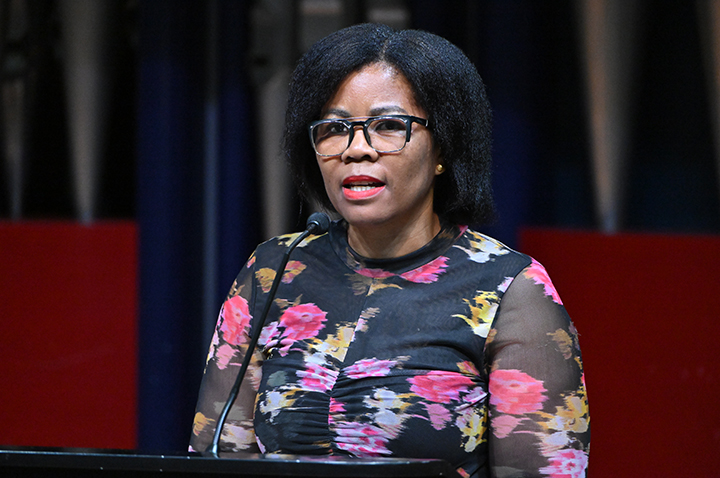 Unisa initiative offers early-career academics "a stepping stone towards greatness"
Unisa initiative offers early-career academics "a stepping stone towards greatness"
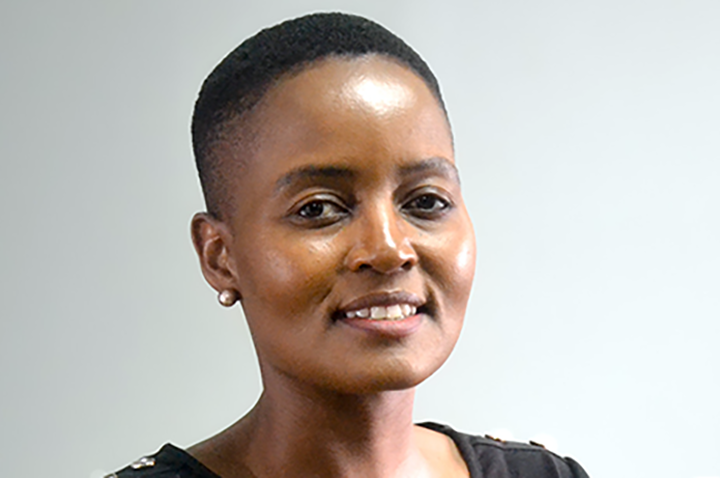 Seasoned meteorologist joins Unisa
Seasoned meteorologist joins Unisa
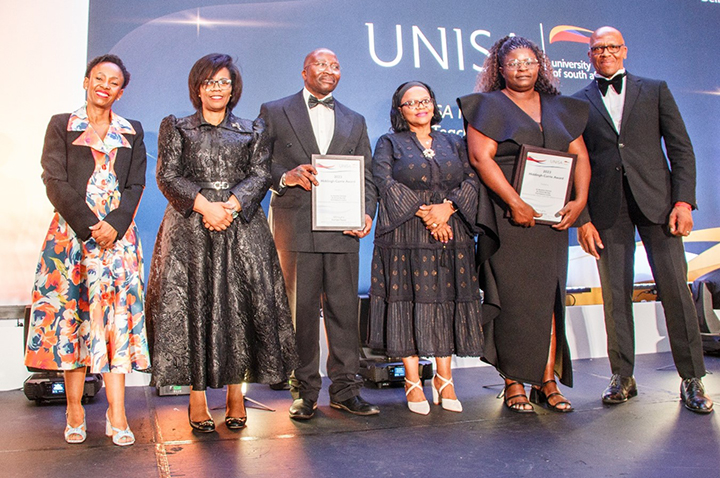 Unisa celebrates the 2023 and 2024 Hiddingh-Currie Award winners
Unisa celebrates the 2023 and 2024 Hiddingh-Currie Award winners
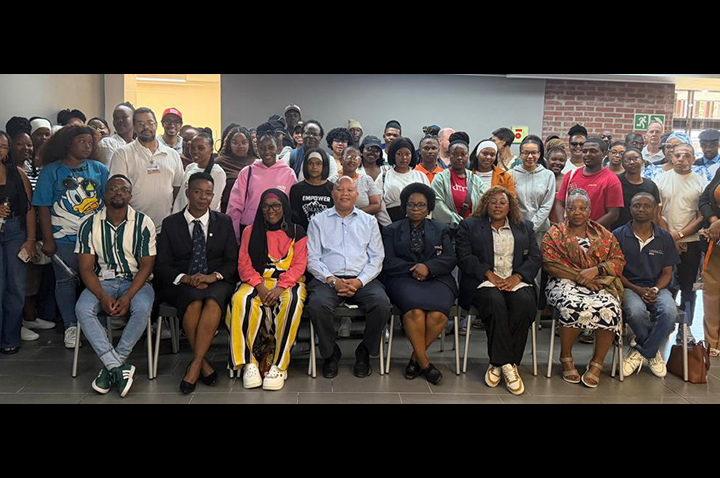 Unisa celebrates a project of hope, dignity and student success
Unisa celebrates a project of hope, dignity and student success